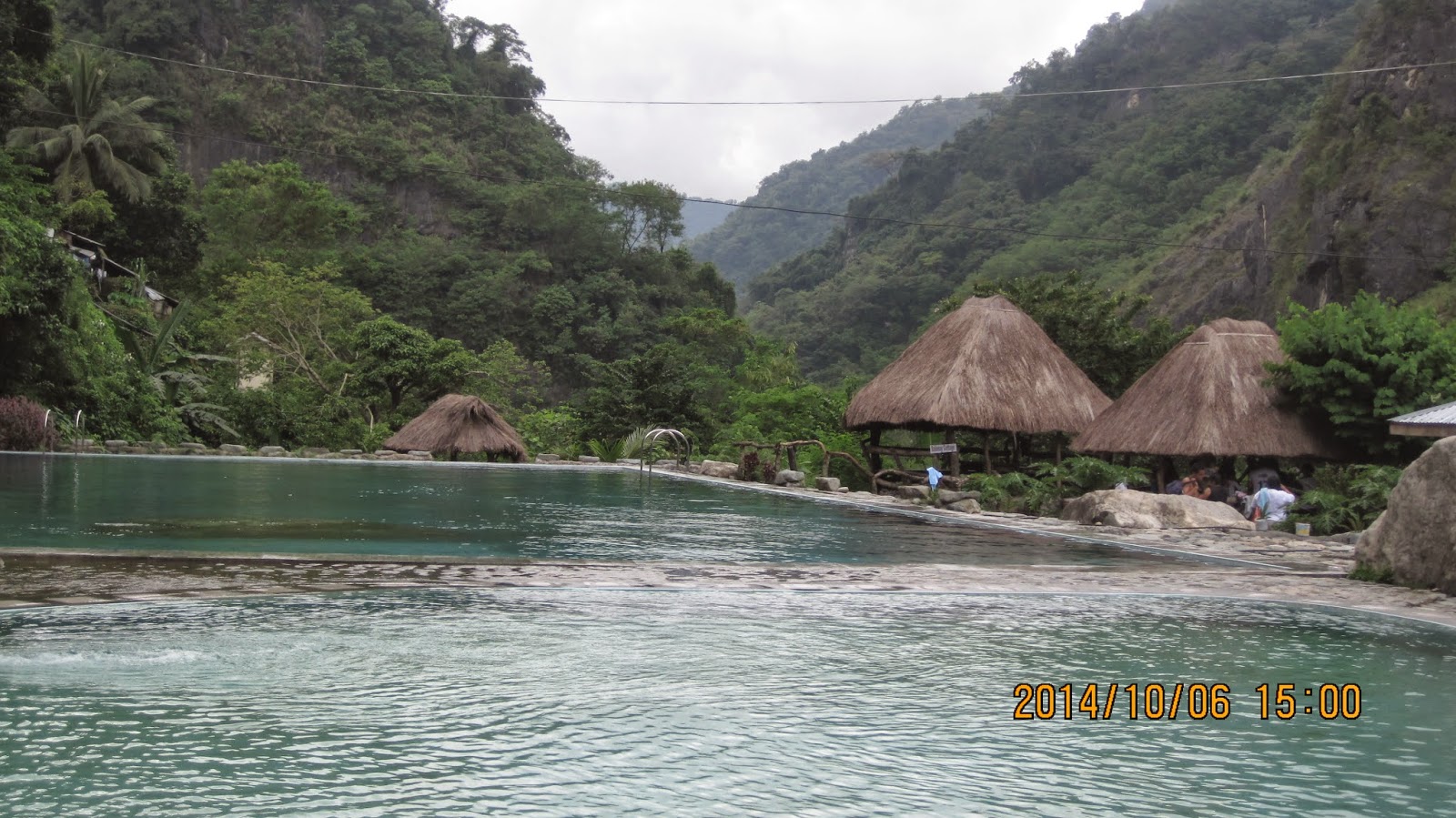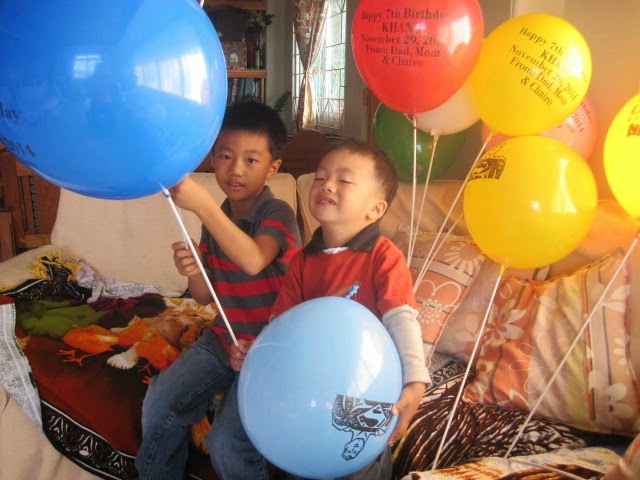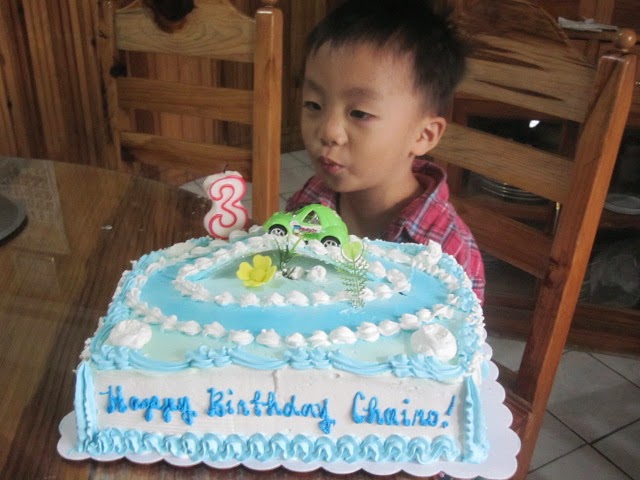2 April 2015
26 February 2015
1 November 2014
100 days at BSU
I tried to develop an access database so that all incoming documents are recorded, either the documents are recorded as they are released or can be printed and those releasing will just double check and release the documents. I tried recording for a day and it seemed to work. However, the secretary dismissed the system saying “no January tayo nlng i-start” -- she apparently did not want to be the one who will encode all incoming documents, or perhaps just got used to writing in the logbook.
It was a little difficult at first because per my ‘position description’, administrative work was not in the list. Though I wanted to help, it seemed or I felt I was not welcome to do it because there are four administrative staff there already. But during meetings, it seemed the President expected me to be involved. Anyway, I just tried to do what he tasked me and continue to remind myself of what was in my ‘position description form’.
We do not segregate waste at the BSU-OP, hence maybe BSU community on the whole do not segregate waste (quite strikingly shocking to me because BSU is a prime institution in La Trinidad, Benguet, a town proud of its solid solid waste management program; even in Tabangaoen, Balili, we must segregate or your residual waste will not be collected). Or maybe proper segregation was the culture PhilRice has engrained in me that it was unthinkable not to segregate. So I saw two trash bins and labelled it “biodegradable” and “plastic/non-biodegradable”. A day or two after, my labels were trashed along with the trash. I stopped trying and accepted the culture.
Early Imaginings
Trying to be a researcher as my position called for and wanting to orient myself about BSU 'affairs', I tried to read the BSU annual reports in the last 10 years. I realized how vast and wide the research scope and horizon at BSU is (at least relative to PhilRice). For 20 years, I had to study something related to rice and the few rice-based crops and products. But at BSU, one can work on any highland or no highland vegetable, fruit or flower, any root crops, any crop or animal really; or any issue--climate change, organic agriculture, solid waste management, environmental conservation, nursing, cooperatives, NGOs, industry... One (at least the faculty) can do anything related to instruction, research, development, extension, training, commercialization, production, basic, applied... research themes of almost about anything. I was somehow excited, and started imagining for BSU. My earliest imaginations were:
- a technical cooperation project...
- a biocontrol production plant supplying most of the CAR and other regions;
- a yearly "lakbay organik" in an organic agriculture park--something the farming/academic community can look forward to each year;
- a fenced and preserved strawberry central park with R&D center;
- a children's park near the BSU oval haha;
- a genebank for highland horticultural crops, and eventually a molecular laboratory that can be used especially for highland/semi-temperate crops, etc (oops, organic agriculture alright, but the trend in science is towards genetic engineering);
- an additional subject "environmental or resource economics" for environmental science or agricultural economics students or additional major in the Department of Agricultural Economics;
- summer schools or joint summer schools with selected SCUs or agency in specific fields--something line agency staff and academic people especially from the lowlands will look forward to each year;
- a document tracking system in place at BSU;
- a grant (with loan) program for greenhouse/GAP-compliance;
Imaginings indeed, but well who knows. I'm tasked to be a pusher, pusher I will be.
Overall, from the time I applied to my first 100 days, I saw grace. I saw it most during the application period, during the two nerve-wracking job interviews (and the two more teaching demonstration and job interviews I went through in another institution because of my impatience and lack of trust), in the death of my much desired supposed to be third child, in the issues both at PhilRice (the 'on humanitarian ground' permission to transfer since I only finished 50% of my required return service) and BSU (why “the outsider” was taken), in the demotion back to my previous position and salary rate 15-yrs ago, in my work assignment and job description confusion, in my first 100 days experience. Through it all, I saw grace in the full support of my husband.
Sinful sinner as I am, I deserved nothing, but I saw grace, see grace and believe I will see more grace.
May I be able to give back the utmost service to my Redeemer in this new place, new work He has allowed me to have. May I be able to more fully support my husband in his vocation and service to the Maker. May I be able to properly and lovingly take care of him and my kids that they may grow to grow in His grace as well. May I be able to be an encouragement to my church who prayed and continually prays for my family. May I be able to give glory only to the One Master who made all things possible.
1 July 2014
The Problem of Pain --And the Answer of Love
(We have this board game similar to the more popular snake and ladder, except it is on bugs and aphids. Khane, for reasons I fail to understand, usually lose because he keeps drawing the cards that says Go Back 1, 2, 3 or 4 spaces or he usually steps on a space where he needs to go back to START. It is very difficult for a 4-year old to always lose during games. It is much more difficult for parents to put across to a 4-year old the principle of sportsmanship, the fact of games by chance, the principle that it is better to be honest and lose, than to cheat and win, or the principle of being happy for somebody who wins. One time, when I was explaining to him that it's OK to lose, he said with his eyes communicating what he was saying, "Paano po kapag lagi lagi naman ako natatalo."
For I know the plans I have for you, declares the LORD, plans for welfare and not for evil, to give you a future and a hope.
— Jeremiah 29:11
The discipline of the Father who sent Jesus is not punitive and is not pointless, but is full of grace. We cannot always prove this by the facts available to the human eye in a fallen world. Still, Scripture gives us eyes of faith to see that God’s plans are to benefit us and not to harm us; to give us a future and a hope (Jer. 29:11). He who did not spare his own Son but delivered him up for us will along with that gift provide whatever is needed for our eternal well being (Rom. 8:32).
So that we will perceive the reality of God’s affection despite the real afflictions we must endure in this world, the Bible makes the ministry of Jesus its theme from the first page to the last. Every character, event, and teaching in Scripture unfolds the mystery that God has loved his people from eternity and has sent his Son to redeem them from weakness and fit them for heaven. God’s passion to save and sanctify his children is so great that it takes priority for him over all our other comforts, pursuits, and affections.
This does not mean that God conforms us to his purposes by discipline alone. No, his ordinary way of molding our hearts is by overwhelming blessing through loving families, provision of all that we need (not all our desires, which would be unhealthy for us), providential control of all circumstances for our good, and joy in him.
Why then does God allow our trials? Perhaps because we often let blessings and comforts dull our perceptions of our greater need to find ultimate and eternal fulfillment in him. God loves us too much to let us become deaf to his voice. As C. S. Lewis put it in The Problem of Pain, “God whispers to us in our pleasures . . . but shouts in our pains.” For our good, God trains us through treasures and trials, by joys and sorrows, through denial of vain desires, and by blessing beyond what we can ask or imagine (Eph. 3:20).
All our heavenly Father allows he carefully designs to promote our spiritual good, eternal salvation, and ultimate fulfillment through the joy of knowing him (Rom. 8:28). What greater expression of his love could there be than that?
(This material is adapted from the Devotionals from LivingChristToday from the Covenant Theological Seminary. It is lifted from chapter 7 of Bryan Chapell’s book Holiness By Grace: Delighting in the Joy That is Our Strength (Crossway, 2001).)

























